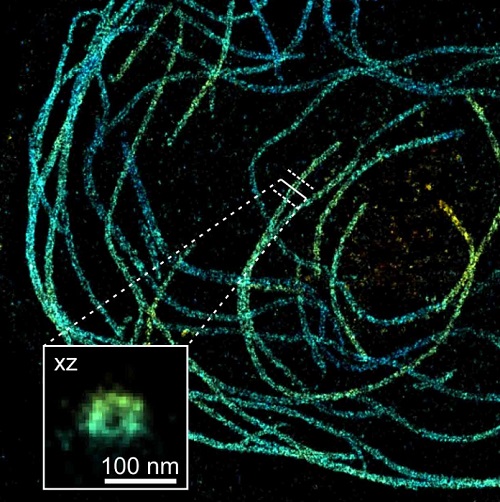RCSI – UCD consortium receives €1.47M SFI Infrastructure Award for advanced microscopy facility
A joint bid by researchers in the Royal College of Surgeons in Ireland (RCSI) and University College Dublin for a SFI Infrastructure Award has been granted €1.47 million to develop a unique facility for highly advanced microscopy in Ireland.
The funding will be used to purchase two super resolution microscopes and one correlative light-electron microscope to be housed in a new dedicated facility with expert staff and accessible to the research community nationwide.
Two microscopes will be located at RSCI (€1.1M) and one in the core microscopy facility in the UCD Conway Institute. Both institutions have committed additional contributions to the purchase and maintenance of the new infrastructure.
Professor Donal O’Shea and Dr Ingmar Schoen led the application from RCSI in collaboration with Professor Dimitri Scholz in UCD Conway Institute.
The application was widely supported by researchers across the country from Trinity College Dublin, University of Limerick, University College Cork, Technological University Dublin, Maynooth University, Queen's University Belfast, and University of Ulster.

Caption: Nanoscale super-resolution image showing the hollow structure of microtubules in a blood platelet (credit: Dr I Schoen, RCSI).
In normal light microscopy, the image resolution is limited by the wavelength of light. Super-resolution light microscopy combines a variety of scientific techniques that get past this limitation and allows clearer pictures be taken of objects that are nanometres in size (one million times smaller than a millimetre).
Correlative microscopy combines the advantages of fluorescent and electron microscopy techniques to allow both molecular recognition and high structural resolution.
“For some scientific problems, you can’t solve them blindfolded. This grant from Science Foundation Ireland will allow Irish researchers to make many new insights, especially in medical and material science applications,” said RCSI Professor of Chemistry, Donal O’Shea.
“By having the equipment in both RCSI and UCD, this will allow the pooling of expertise between the two institutions.”
Professor Dimitri Scholz added, “This is a very exciting development for the Irish research community who will be able to overcome the technical limitations of existing microscopy techniques using these sophisticated instruments.
“Together, we will provide critical mass and expertise in a leading imaging technology that can respond to the challenges of world-class biomedical research.”
Social Media Links